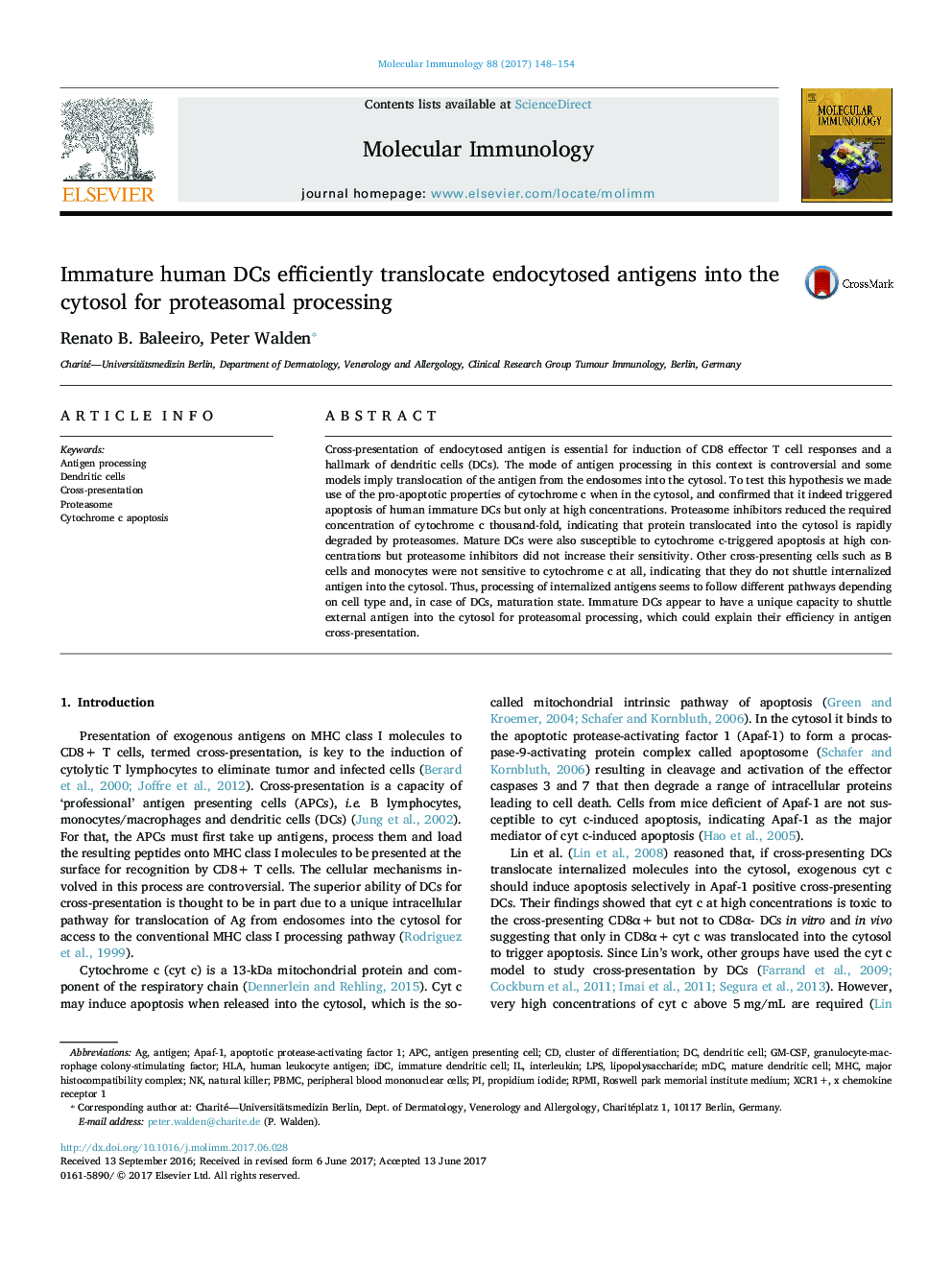| Article ID | Journal | Published Year | Pages | File Type |
|---|---|---|---|---|
| 5591927 | Molecular Immunology | 2017 | 7 Pages |
Abstract
Cross-presentation of endocytosed antigen is essential for induction of CD8 effector T cell responses and a hallmark of dendritic cells (DCs). The mode of antigen processing in this context is controversial and some models imply translocation of the antigen from the endosomes into the cytosol. To test this hypothesis we made use of the pro-apoptotic properties of cytochrome c when in the cytosol, and confirmed that it indeed triggered apoptosis of human immature DCs but only at high concentrations. Proteasome inhibitors reduced the required concentration of cytochrome c thousand-fold, indicating that protein translocated into the cytosol is rapidly degraded by proteasomes. Mature DCs were also susceptible to cytochrome c-triggered apoptosis at high concentrations but proteasome inhibitors did not increase their sensitivity. Other cross-presenting cells such as B cells and monocytes were not sensitive to cytochrome c at all, indicating that they do not shuttle internalized antigen into the cytosol. Thus, processing of internalized antigens seems to follow different pathways depending on cell type and, in case of DCs, maturation state. Immature DCs appear to have a unique capacity to shuttle external antigen into the cytosol for proteasomal processing, which could explain their efficiency in antigen cross-presentation.
Keywords
LPSPBMCIDCGM-CSFRPMIAPAf-1APCMDCnatural killerHuman leukocyte antigenHLACross-presentationinterleukincluster of differentiationDendritic cellMature dendritic cellImmature dendritic cellperipheral blood mononuclear cellsDendritic cellsantigen presenting cellApoptotic protease-activating factor 1granulocyte-macrophage colony-stimulating factorlipopolysaccharideMHCmajor histocompatibility complexRoswell Park Memorial Institute mediumAntigenAntigen processingProteasomePropidium iodide
Related Topics
Life Sciences
Biochemistry, Genetics and Molecular Biology
Molecular Biology
Authors
Renato B. Baleeiro, Peter Walden,
